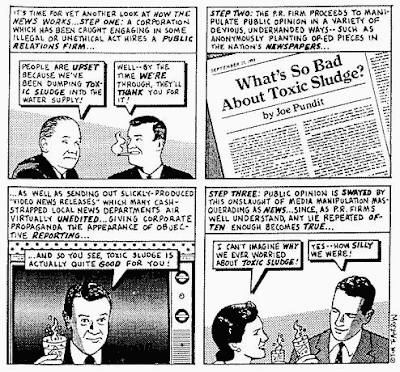My father hates sending emails. He only uses a cell phone because his business requires it. The last time he tried to choose a song on an iPod Touch he tried spinning the 'menu' button on the front and wondering why nothing was happening. Are you ready for the irony? My father graduated college majoring in Computer Science. Technology has just come so far so fast that older generations find it difficult to keep up with its pace. My generation finds it so simple to use new technologies because we grew up with them as they were evolving.
Arguably the most utilized of all new technologies is the Internet, a virtual playground in which anyone can enter (even if they're taller than 48 inches). While we pay for our phone use, watching our cable televisions or renting or buying films, we do not pay for all of our visits to the World Wide Web. Our service providers set a flat rate which we pay and in turn we will use the Internet as often as we like. We take part in network neutrality (net neutrality) by freely roaming the Web at our own leisure. However, service providers want this freedom to change.
Ursula Franklin called the Internet a "giant dump: people and organizations dump information in bits and pieces; they also retrieve whatever is of use and interest to them" (Franklin 144). If the Internet is a dump then we are the scavengers, picking what we want from the pile. Apparently, this is also how big media companies view its users. They believe that we are stealing information that isn't rightfully ours, and if we are going to take it then we should be paying for it.
Net neutrality is an issue that is not commonly discussed; my wonder is why it is not. By enforcing such regulations on Internet use it seems as though these companies are stripping us of our freedom. If the Internet was always regulated then this wouldn't be a problem today, but the fact that we have enjoyed this freedom for so long and are having it threatened now is difficult to comprehend. Would I be able to live without the Internet? Yes, I would, but it would completely change my lifestyle. About 75% of the information I use for school is on the Internet, as well as 100% of all course material that I may have missed during in-class lectures. The Internet is a convenience that so many would find it difficult to cope with if access was limited.
My biggest concern with this issue is the suggestion of removing our freedom to use the Internet. If media corporations can get away with taking this freedom away from us then what would be next? Will the government start to feel that its people are easily manipulated and powerless? I can't predict the outcome of such a situation; I can merely brainstorm.
Lawrence Lessig is the founder of an organization called Creative Commons, dedicated to expanding collections of creative works available for all to build upon and share. Lessig wrote a book,
Free Culture: The Nature and Future of Creativity, in which he said that "never before in human history has the power to control creative progress been so concentrated in the hands of the powerful few, the so-called 'Big-Media'" (Lessig). Lessig presents a case study in his introduction about a Supreme Court case in 1945. Farmers Tinie Causby and Thomas Lee started to lose chickens, as they would fly themselves into the walls of the barn after hearing airplanes flying overhead their property. To help fight their case, the farmers appealed to a common law principle enforced by Englishman Lord Blackstone. Blackstone said that one’s property reached "an infinite extent upwards", and the farmers wanted the planes to stop flying over their property as it was trespassing.
The Supreme Court heard their case, and responded with this statement: "[The] doctrine has no place in the modern world. The air is a public highway, as Congress has declared. Were that not true, every transcontinental flight would subject the operator to countless trespass suits. Common sense revolts the idea..." (Lessig 2) If "common sense" revolts at an idea presented by common law, who's to say that the government won't use their "common sense" to reverse net neutrality, or other laws that we take for granted in our democracy?
We are surrounded by a fast paced culture which changes every day. My biggest fear is that corporate leaders have been taking advantage of this culture, and the common people are simply scavengers picking at the dump.
Works Cited
Franklin, Ursula M..
The Real World of Technology. Toronto: House of Anansi Press Inc., 2004.
Lessig, Lawrence.
Free Culture: The Nature and Future of Creativity. London: Penguin Books Ltd., 2004.






